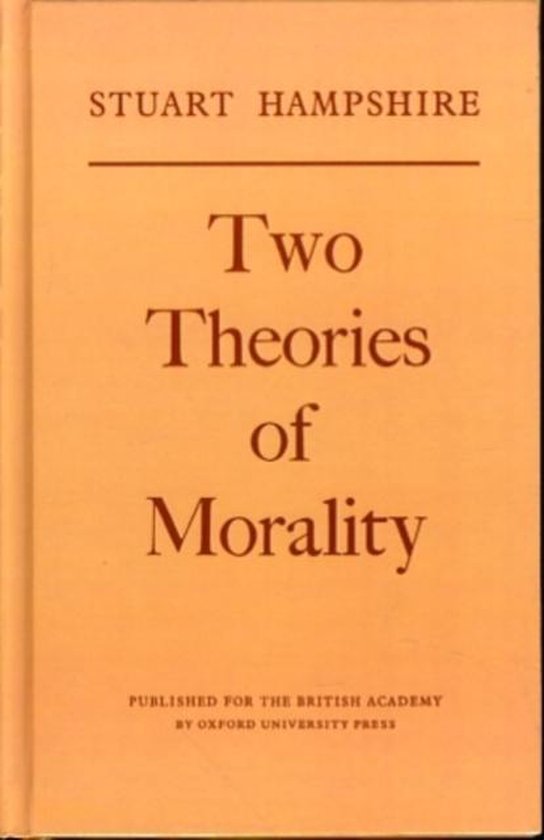
Two Theories of Morality
Stuart Hampshire compares two radically different conceptions of morality, those of Aristotle and Spinoza. He discusses the relation between moral intuitions and moral theory, and the contrasting ideas of moral normality and moral conversion. Spinoza's theory of the relation between mind and body is expounded, and its relevance explained.
In this expanded version of his Thank-Offering to Britain Fund lectures, delivered at the British Academy in February 1976, Stuart Hampshire compares two radically different conceptions of morality, those of Aristotle and Spinoza, authors, he claims, of the most plausible of all moral philosophies. He discusses the relation between moral intuitions and moral theory, and the contrasting ideas of moral normality and moral conversion. Spinoza's theory of the relation between mind and body is expounded and its relevance to recent theories is explained.
In this expanded version of his Thank-Offering to Britain Fund lectures, delivered at the British Academy in February 1976, Stuart Hampshire compares two radically different conceptions of morality, those of Aristotle and Spinoza, authors, he claims, of the most plausible of all moral philosophies. He discusses the relation between moral intuitions and moral theory, and the contrasting ideas of moral normality and moral conversion. Spinoza's theory of the relation between mind and body is expounded and its relevance to recent theories is explained.
| Auteur | | Stuart Hampshire |
| Taal | | Engels |
| Type | | Hardcover |
| Categorie | | Religie, Spiritualiteit & Filosofie |